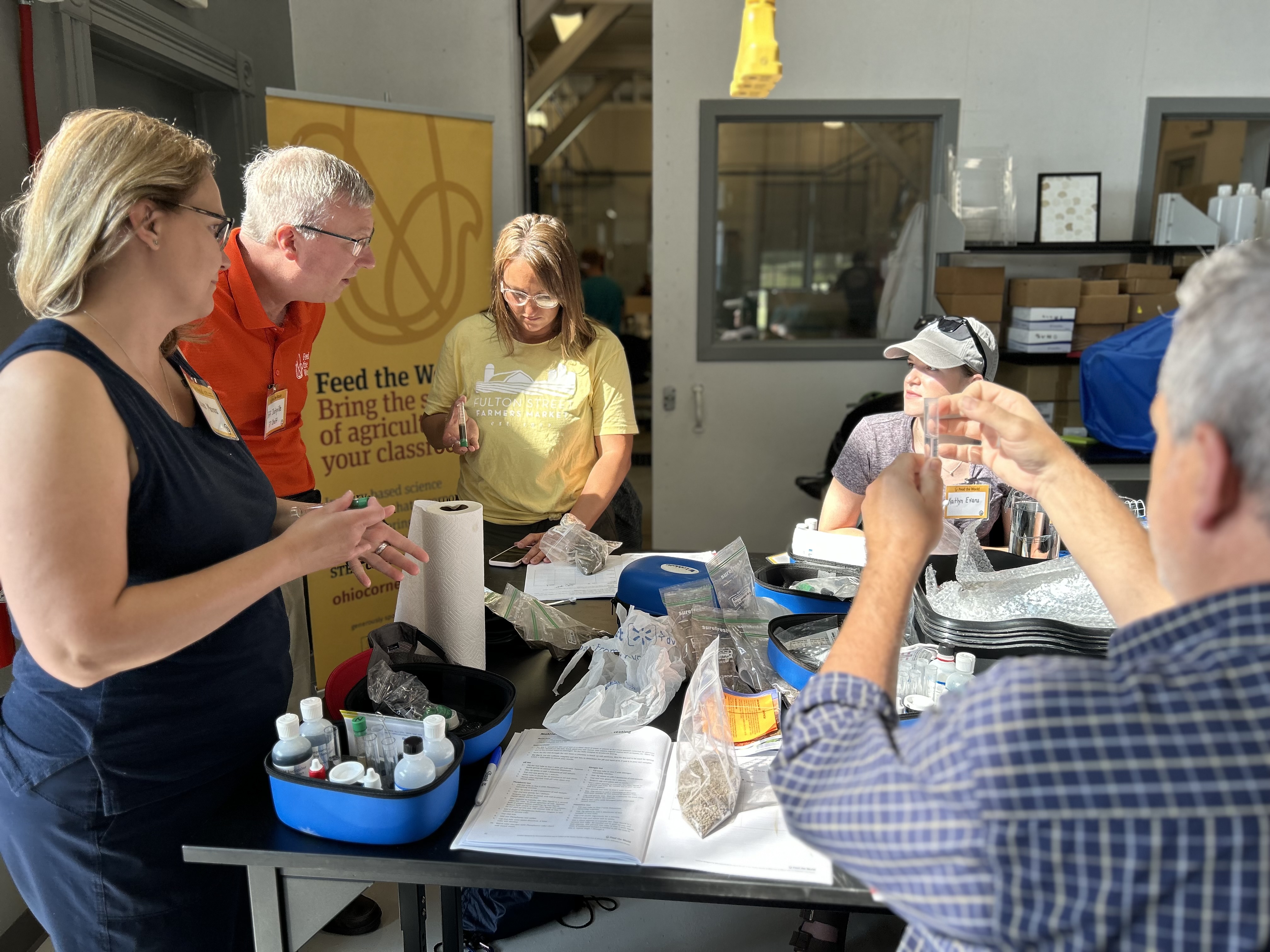
Heather Gilliland, an 8th grade science teacher at Miami East, discovered unexpected connections between her science curriculum and agriculture during a recent Feed the World workshop. Despite her teaching experience, the workshop revealed how deeply scientific principles are embedded in modern agriculture.
“At this workshop, I was able to learn a whole lot of new things,” Gilliland shared. “I thought I had a pretty good grasp on agriculture and education. After hearing about ethanol and a lot of different issues, I realized there was a huge gap in my understanding. That was a huge ‘aha’ moment for me.”
The workshop, sponsored by Ohio Corn & Wheat, equipped Gilliland with free curriculum materials and classroom supplies worth hundreds of dollars. These resources will help her address what she sees as a critical knowledge gap among students.
“Agriculture is a very important part of our lives, and it’s important that we are all eating foods that are nutrient-dense,” Gilliland explained. “A lot of our students are not aware of issues that are facing agriculture, so I really want to help bridge that gap.”
For Gilliland, the workshop highlighted valuable industry connections. “Working with these people—the farmers and the people on the board of Ohio Corn & Wheat—was very eye-opening for me,” she noted. “Seeing the collaboration they have is impressive, and they are very passionate about what they do.”
Beyond teaching scientific concepts, Gilliland plans to use workshop materials to introduce students to science-based agricultural career paths. “Unfortunately, there is a huge deficit in exposure that students have to opportunities in agriculture,” she explained. “I really want to make sure we are connecting these dots and making sure students are aware of the careers agriculture has to offer.”
“This is just the tip of the iceberg for me,” Gilliland emphasized. “I can’t wait to dig in a little bit deeper and expose my kiddos to this at school just so they have a better understanding of the food that comes to their table and the people that are working so hard to make that happen.”
Educators interested in bringing agricultural science into their classrooms can access free, teacher-developed materials on the Feed the World website, joining teachers like Gilliland in connecting students with the agriculture that surrounds them.